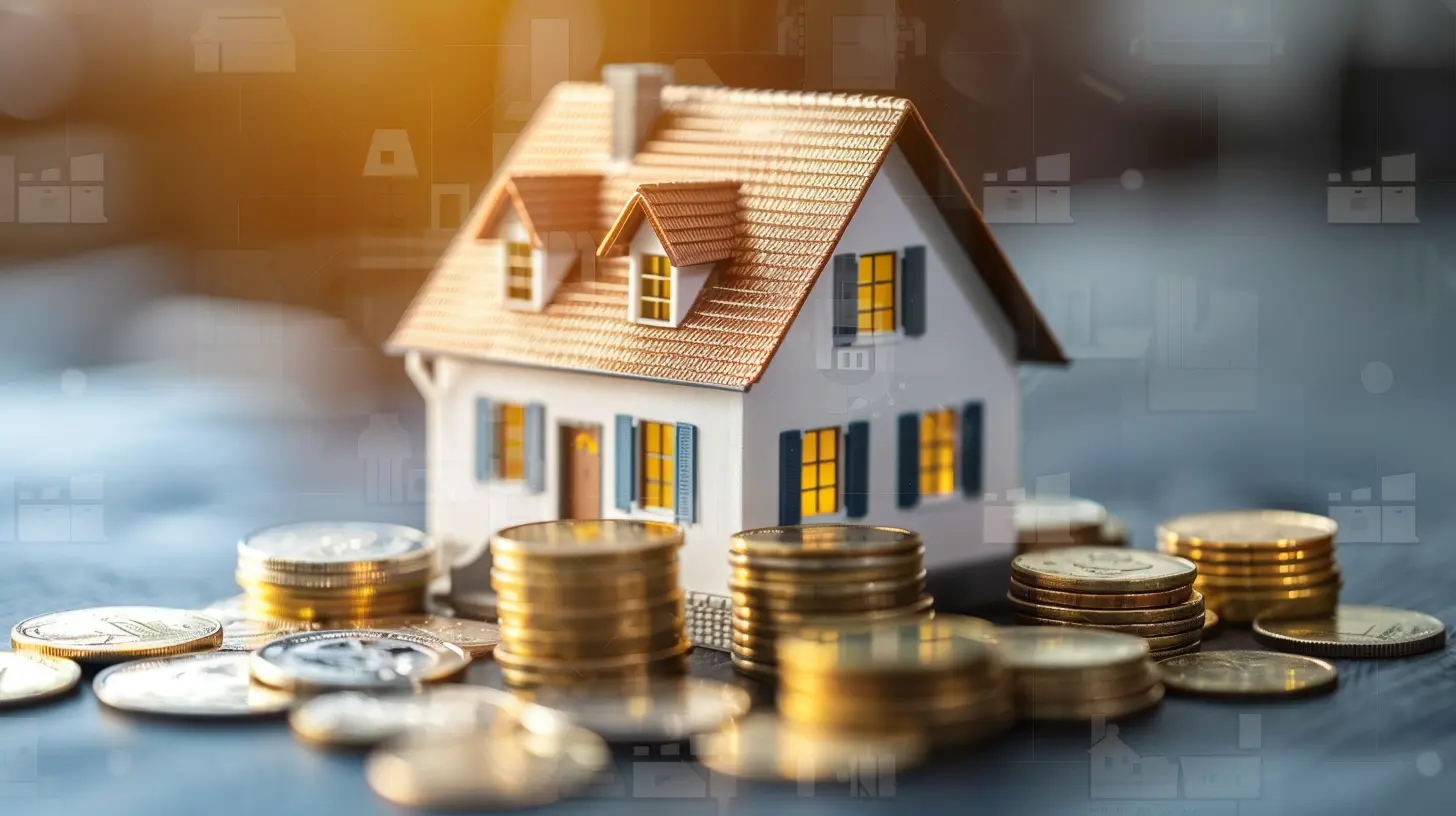The Impact of Economic Changes on Real Estate Prices
9 April 2025
Economic changes affect nearly every aspect of our lives, from the cost of groceries to the value of our homes. When the economy shifts—whether due to inflation, interest rates, or employment levels—real estate is one of the first sectors to feel the impact. But how exactly do these changes shape property prices? And what should buyers, sellers, and investors watch out for?
In this guide, we'll break down the key economic factors that influence real estate prices, helping you understand the market better and make smarter decisions.

Understanding the Relationship Between the Economy and Real Estate
Real estate prices don’t exist in a vacuum. Instead, they fluctuate in response to economic conditions. When the economy is booming, people have more disposable income, banks lend more freely, and property values tend to rise. On the flip side, during economic downturns, uncertainty can cause prices to drop.But it’s not just a simple case of "good economy = high prices" and "bad economy = low prices." Many moving parts are involved, so let's break them down.

Key Economic Factors That Influence Real Estate Prices
1. Interest Rates: The Cost of Borrowing
One of the biggest factors influencing real estate prices is interest rates. When interest rates are low, borrowing money to buy a home becomes more affordable, leading to higher demand. Higher demand, in turn, pushes property prices up.On the other hand, when the Federal Reserve or central banks raise interest rates, mortgage costs increase. This discourages buyers, slows demand, and can lead to falling real estate prices.
For example, in recent years, the U.S. housing market saw a significant rise in prices due to historically low-interest rates. But as soon as rates began climbing, demand slowed, and prices started stabilizing.
2. Inflation: The Silent Price Elevator
Inflation is another crucial economic factor. When inflation rises, the cost of construction materials, labor, and land also increases. Builders pass these added costs onto buyers, causing property prices to rise.However, inflation can also reduce purchasing power. If wages don’t keep up with inflation, fewer people can afford to buy homes, leading to decreased demand. In economic history, we’ve seen periods where inflation caused rapid price jumps, followed by corrections when buyers pulled back.
3. Employment and Wage Growth: The Power of Buying Potential
A strong job market gives people confidence in their financial future. When unemployment rates are low and wages are rising, more people can afford to buy homes. This surge in demand typically drives real estate prices up.Conversely, during a recession or periods of high unemployment, fewer buyers enter the market, which can lead to a drop in property values. This was evident in the 2008 financial crisis, where widespread job losses led to plummeting home values and foreclosures.
4. Supply and Demand: The Classic Market Rule
Supply and demand are fundamental to real estate price movements. Here’s how they interact:- When demand is high and supply is low (e.g., limited housing availability in a desirable city), prices soar.
- When supply outpaces demand (e.g., a housing boom where too many properties hit the market), prices tend to stabilize or drop.
A great example of this was the early 2020s housing market boom, where demand outstripped supply, pushing home prices to record highs.
5. Government Policies & Regulations
Government intervention plays a major role in shaping real estate prices. Policies such as tax incentives, first-time homebuyer programs, and zoning laws can either encourage or slow down market activity.For example, in times of economic downturn, governments often introduce stimulus measures to boost housing demand. Conversely, strict zoning laws or increased property taxes can discourage buying and suppress price growth.
6. Consumer Confidence: The Psychological Factor
Real estate markets are heavily influenced by public perception. When people feel optimistic about the economy, they’re more likely to buy homes and invest in property. But if there’s uncertainty—perhaps due to political instability, recession fears, or global crises—people hold back, reducing demand and potentially causing prices to drop.One recent example of this was the COVID-19 pandemic, where initial uncertainty led to a temporary market slowdown. However, as confidence returned, low interest rates fueled a massive housing surge.

How Different Economic Cycles Impact Real Estate
Economic cycles are natural. They include expansion, peak, contraction, and recovery. Here’s how each phase affects real estate prices:1. Economic Expansion (Boom Phase)
- Low unemployment, wage growth, and high consumer confidence.- Housing demand increases, and prices rise.
- Sellers benefit, and multiple offers on homes become common.
2. Economic Peak (Market Saturation)
- Growth slows, but prices remain high.- Affordability issues arise as wages struggle to keep up.
- Some buyers get priced out of the market.
3. Economic Contraction (Recession/Slowdown)
- Unemployment rises, reducing buyers’ ability to purchase homes.- Property demand drops, often leading to price corrections.
- Foreclosures may increase if homeowners struggle with mortgage payments.
4. Economic Recovery (Bounce-Back Phase)
- Job market stabilizes, consumer confidence improves.- Housing activity picks up again, and prices begin to rise.
- Investors and first-time buyers re-enter the market.

What Does This Mean for Buyers and Investors?
For Homebuyers:
- Low-interest rate periods are great times to buy since borrowing is cheaper.- During recessions, sellers might offer better deals, but job security concerns should be considered.
- In hot markets, be prepared for bidding wars and higher prices.
For Investors:
- Buy during downturns: Properties may be undervalued, presenting good long-term opportunities.- Sell during peaks: When the market is hot, you can maximize profits.
- Rental demand increases in uncertain markets, making real estate a solid investment even in downturns.
Final Thoughts
Economic changes will always impact real estate prices, whether through interest rates, inflation, employment trends, or government policies. The key is understanding these shifts and planning accordingly.If you're a buyer, knowing when to act can save you thousands. If you're an investor, timing the market right can mean huge gains. And if you're a homeowner, staying informed helps you make smarter financial decisions.
At the end of the day, real estate is a long-term game. While economic fluctuations can cause short-term shifts, property values historically trend upward over time. Keeping an eye on economic indicators can help you navigate the market confidently, no matter the state of the economy.
all images in this post were generated using AI tools
Category:
Real Estate MarketAuthor:

Kingston Estes
Discussion
rate this article
8 comments
Summer Bennett
In shifting tides of gold and gloom, Real estate dances, finds its room. Economic whispers shape the ground, As dreams of home in flux abound.
May 10, 2025 at 3:53 AM

Kingston Estes
Thank you for your poetic reflection! It beautifully encapsulates the dynamic interplay between economic shifts and the ever-evolving real estate landscape.
Anastasia Mitchell
Economy shifts: the real estate rollercoaster keeps us all guessing!
April 26, 2025 at 8:43 PM

Kingston Estes
Thank you for your insight! The unpredictability of economic shifts certainly adds complexity to the real estate market.
Eleanor Diaz
“Economic changes and real estate prices are like a dance: sometimes they tango gracefully, other times it’s a clumsy two-step. Just remember, whether the market's rising or falling, there’s always a floor to land on—preferably hardwood!”
April 22, 2025 at 11:16 AM

Kingston Estes
Thanks for the creative analogy! It’s a great reminder that real estate, much like dance, requires agility and adaptability in changing economic times.
Cypher McPhail
Great insights on the relationship between economic changes and real estate prices. It's essential for investors and buyers to stay informed about these dynamics to make well-informed decisions. Thank you for sharing!
April 18, 2025 at 4:42 AM

Kingston Estes
Thank you for your thoughtful comment! I'm glad you found the insights valuable for making informed decisions in real estate.
Naomi McFarlane
Economic shifts directly influence real estate prices, with interest rates, inflation, and employment trends shaping demand and supply, ultimately determining market dynamics and investment opportunities.
April 16, 2025 at 3:46 AM

Kingston Estes
Thank you for your insightful comment! Indeed, economic factors like interest rates and employment trends play a crucial role in shaping real estate prices and investment strategies.
Olympia Ellison
This article effectively highlights how economic shifts influence real estate prices. Understanding factors like interest rates and employment trends is crucial for buyers and investors alike. The insights provided will help navigate the market landscape and make informed decisions in an ever-changing economic climate. Great read!
April 14, 2025 at 4:44 AM

Kingston Estes
Thank you for your thoughtful comment! I'm glad you found the insights helpful for navigating the real estate market.
Madison Curry
Real estate prices: the only thing that changes faster than my Wi-Fi connection!
April 10, 2025 at 4:37 AM

Kingston Estes
That's a clever comparison! Indeed, economic shifts can lead to rapid changes in real estate prices, often outpacing even our fastest internet connections.
Tobias Graham
Ah, the real estate market—where the prices rise faster than my hopes of finding a parking spot! Economic changes have us all playing a game of Monopoly, but remember: sometimes it's just a bad time to buy… or sell… or even look!
April 9, 2025 at 8:49 PM

Kingston Estes
I couldn't agree more! The volatility in the market can certainly make navigating real estate feel like a complex game. Timing is key, and it's essential to assess the situation before making any moves.
MORE POSTS

Calculating Your After Repair Value: What Every Flipper Needs to Know

Top Tips for a Stress-Free Move with Large Musical Instruments

Navigating the World of Digital Property Deeds with Blockchain

Homeowners Insurance for First-Time Buyers: A Simple Guide

The Rise of Remote Work and Its Effect on Housing Demand

Enhancing Urban Development with Smart City Technologies